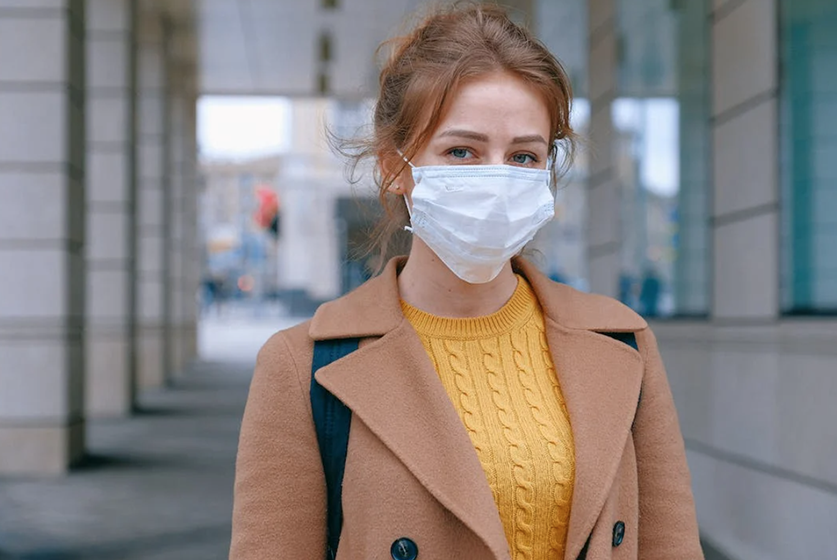Preliminary Study Findings Reveal Regular Cannabis Users Had Lower ICU Admissions for COVID-19

The world may be returning as normal, but Covid-19 hasn't been wiped out yet. More than 12.7 Billion doses have been administered globally, even among the vaccinated-patients cotuine to rise daily.
In the absense of a cure, cannabis is claminig the limelight as a potential tool for relieving the symptoms of this potentially deadly virus. based on a new study featured in the journal of cannabis research, a small sample of cannabis consumers admitted to the hospital for covid-19 had reduced symptom severity during their hospital stay than non-users.
“Cannabis users had significantly better outcomes compared to non-users as reflected in lower NIH scores (5.1 vs. 6.0), shorter hospitalization (4 days vs. 6 days), lower ICU admission rates (12% vs. 31%), and less need for mechanical ventilation (6% v.s 17%). ICU admission was 12 percentage points lower, and intubation rates were 6 percentage points lower in cannabis users,” reads an excerpt from the study.
According to the study’s authors, the connection between cannabis usage and better COVID-19 outcomes is “sensible.” However, the researchers noted that the study was limited and that their findings were merely suggestions. Due to the study's limitations, there is a pressing need for ongoing prospective and observational studies that gather harder-hitting conclusions.
Cannabis Consumers Less Likely to Be Admitted to ICU for COVID-19 Suppose the findings of this recent study are anything to go by. Data were inspected retrospectively by the study's authors, which did not distinguish between consumption methods. In that case, chronic cannabis users hospitalized with COVID-19 may benefit from enhanced health, as opposed to those who don't consume the herb. The team also measured the following factors:
•Intensive care unit (ICU) admission
•In-hospital death for cannabis consumers and non-users
•Length of stay for hospitalized cases
•Mechanical ventilation
•NIH Covid-19 Severity Scores
•Supplemental oxygen demand/requirements
Furthermore, among those who regularly consumed the plant, there was a reduced need for mechanical ventilation or ICU admission. Separate data demonstrate an increased demand for prolonged mechanical ventilation (two weeks or more) among COVID-19 patients with associated respiratory failure.While the findings of this study certainly do spotlight cannabis' therapeutic potential, the study authors noted that the variance in overall survival rates was not overly distinct among cannabis users and non-users. 69 patients (4% of 1,831 COVID patients who partook in the study) claimed to use cannabis actively. “Given the diverse ways cannabis can be introduced into the body, our grouping of inhaled and ingested cannabis should introduce little variability to an already highly variable cohort of cannabis users.
Pooling all cannabis users, regardless of administration method, gives our study more power in analysis while minimizing the risk of overfitted data," wrote the study's authors.The cannabis users in this study, each with individual characteristics, were on the younger side of the age spectrum. Specifically, 62% were male and 38% female. Furthermore, 48% were Caucasian, 28% were Latinx, 15% were Black, and 4% were Asian.
Regarding personal smoking habits, 20% of cannabis consumers were tobacco smokers, significantly less than the 4% of overall patients. “Consistent with general trends, active cannabis users were younger than non-users. However, when adjusting for age, these outcomes remained consistent.” “Cannabis users were likelier to have lower inflammatory markers levels on admission than non-users. This effect was sustained during their hospital course, with cannabis users continuing to have lower inflammatory markers than non-users,” the study authors continued
Who Contributed to the Study?
The main contributors to this study were a group of specialist doctors who maintain extensive knowledge and expertise in pulmonary disease, including:
- Donald P. Tashkin, Division of Pulmonary & Critical Care Medicine
- Dr. Carolyn M. Shover, Emergency Medicine Specialist in Downey, California, from the David Geffen School of Medicine at the University of California, Los Angeles
- Igor Barjaktarevic, Division of Pulmonary & Critical Care Medicine
- Jennifer A. Fulcher of the Division of Infectious Diseases
- Nicholas J. Jackson, Department of Medicine Statistics Core
- Russell G. Buhr, Division of Pulmonary & Critical Care Medicine, and staff member at the Veterans Affairs Healthcare System and the Center for the Study of Healthcare Innovation, Implementation, and Policy, Health Services Research & Development.
Separate Studies Have Delved Into the Link Between COVID-19 and Cannabinoids
As jaw-dropping as the results of this study might be to cannabis skeptics and advocates alike, the research effort is not the first to explore the connection between cannabinoids and COVID. Nonetheless, it is the first to examine data from patients admitted to the hospital.Earlier studies and investigative reports have mirrored the findings of the Journal of Cannabis Research study. For example, one PubMed trial into the use of cannabidiol (CBD) found that the non-psychotropic element of cannabis and hemp could inhibit SARS-CoV-2 infection and promote the host's innate immune response.
Another widely broadcast study titled "Cannabinoids Block Cellular Entry of SARS-CoV-2 and the Emerging Variants" learned that the hemp-derived cannabinoids Cannabigerolic acid (CBGA) and Cannabidiolic acid (CBDA) obstruct COVID from penetrating cells.“These cannabinoids, isolated or in hemp extracts, have the potential to prevent as well as treat infection by SARS-CoV-2,” reported the researchers, who also drew attention to the fact that the psychoactive cannabinoid THC (tetrahydrocannabinol) was not included in the study.According to a review published in the Virology journal, COVID-19 can spark uncontrolled cytokine release and immune system hyperactivity.
This is relevant since a 2021 study discovered that cannabinoids might help to “curb inflammation, prevent fibrosis, and lead to disease remission," as well as minimize “inflammatory storms” in a skin tissue model. Combined, the outcome of these research initiatives lends promise to scientists, doctors, and patients who contract coronavirus. Although promising, more research is needed to fully understand the association between regular cannabis use and COVID-19 recovery rates.
Written and Published by Bethan Bee Rose in Weed World Magazine issue 161
Featured Image: Pexels















Please complete your information below to login.
Sign In
Create New Account